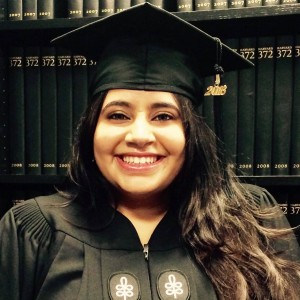I was curious to see how Muslim women on Harvard’s campus thought about the issue of wearing the veil. I decided to interview two of my friends. Sufia Mehmood is a sophomore who chooses to wear the veil. Mahi Mahmood is a senior who chooses not to. The following are the interview questions I asked and their replies.
Mahi Mahmood, ’16

Do you wear the veil? If so, how often do you wear it? Is there a particular way/style in which you wear yours that is unique to you or your family?
I don’t wear the veil. To be honest, I didn’t even consider wearing the veil until I was in college. Growing up, no woman in my family had ever worn the veil. In recent years, when I’ve questioned why that is, my mom has attributed it to the fact that higher class Muslims in Pakistan are often exempt from the societal expectations that others might be more stringently held to. It’s unclear to me though whether my family’s distancing from religious tradition was a result of their status or if it’s something that has long existed.
Lately, however, I’ve been feeling more and more drawn to the idea of wearing a veil.
Because it feels like such a permanent commitment, however, I must carefully think through this decision: Is it something I can commit to for life? What does it really mean to me to wear a hijab? What does it convey to others (muslim and nonmuslim)? I’m very much still in the process of trying to answer these questions for myself.
Why do you (specifically) wear the veil? Why do Muslim women more generally wear it?
In my opinion, the hijab is, for many women, a method of self-empowerment through modesty. To me the idea of wearing a hijab is not only about the level of religiosity that is often associated with it, but also about making women feel like they have greater control/ agency over their bodies by limiting the people in their lives who have access to it.
We read in class about feminist writers, poets, and other artists about opposition to wearing the veil because it limits women’s freedom and identity. Do you agree/disagree and why? Or, what is your response to this?
I disagree with this sentiment completely. Wearing the hijab is, for many women, a component of Muslim feminism. Opposition to the veil should exist only if women are being unjustly pushed to it; however, in my opinion, these cases are rare. Often, women opt to wear the hijab because they believe it reflects values that have been important to them in their life, community, etc.
Does the veil ever prevent you from doing something you really wanted to do? Has it saved you from any situation you didn’t want to be in?
N/A.
Do other women in your family wear the veil? If yes, is this an expectation?
Answered above.
What does being Muslim mean to you?
This is a question I have struggled with for quite a while. Although I personally consider myself to be quite religious, I often hesitate to make that claim boldly. This is because I am not a very “practicing” Muslim; I drink and party, don’t wear the hijab, and don’t pray namaz often.
However, I would push back on this concept of being a “practicing” Muslim and argue that I practice Islam every time I volunteer, take the time to make someone feel better, do a random acts of kindness, or even just take in the beauty of the world around me and praise His creation. To me, these things are the defining characteristics of a Muslim. The rest of the components (abstinence from alcohol, modesty, prayer, etc.) although important, are not necessary, in my opinion, for one to demonstrate their submission to God.
How do you define your identity? What does it mean to be Mahi?
There are many components to my identity. I am a Muslim woman, a first generation college student from an immigrant family in the lower range of the socioeconomic spectrum, a biologist, a Pakistani, a Harvard student, a middle child, and so many other things. Identity is something that is incredibly fluid in my mind- different parts become salient in different contexts. It’s difficult, then, for me to pinpoint exactly who I am.
——————————————————————————————————————————————————————————-
Sufia Mehmood, ’18

I asked Sufia the same questions as above. The following is her answer to all the questions collectively.
Firstly, we should probably say that the one I wear is called a hijab, not a veil…veils are the ones that would cover the face. I wear it daily. There are multiple styles, but for me personally, I just sewed it with a hole for the head spot lol, just to make it easier so I don’t have to tie it every day. No one else in my family wears it.
I wear it because my dad asked me to. Simple as that…he said it would just make him more comfortable while I’m at college. And I was fine with that compromise as long as I was able to come to college.
I feel like generally each woman has their own reason why they wear it. If you’re asking from a religious standpoint, it’s meant to be so the woman is completely covered around men that are not “mehram,” which just means men that aren’t immediately related to them (brother, father, husband). Male cousins are non-mehram because it is valid to marry first cousins I guess, so some sort of non-familial attraction could ensue between them, whereas that isn’t the case with father or brother.
I don’t think it limits a woman’s freedom and identity as long as she is okay with wearing it. If it is forced, then maybe. But even in my case, just because my dad said he’d feel more comfortable if I did wear it didn’t mean that I had to. I’m over 3000 miles away from home. It was my choice. And I don’t think that it’s limiting because I chose it.
I’ll admit that though I do control whether or not I wear the hijab, I can’t control how others react to it. And there definitely have been situations where I’ve been treated or perceived differently because I was wearing the hijab. I remember one time distinctly when I was just walking down the street in Somerville. A little girl dropped some stuffed animal toy thing, and I picked it up and gave it back. I got a smile from both her and the mom and a thank you. But then, as I was walking away, I heard the little girl ask her mom what the thing I was wearing on my head was. And the mom’s response was, “It’s something that means they’re the bad guys. And bad guys hurt people. So we need to stay away from them.” It hurt, sure. But I don’t have control over what others think or say, and it’s not something that stopped me from wearing the hijab.
My identity…I don’t know. I think that’s still something I’m figuring out for sure. Family. School. What makes me me is how I interact with those around me, the things that make me happy…I don’t know. That’s hard. But I’d definitely say that I don’t think my religion defines me. Each person has a different perception of their relationship with their religion or lack thereof…I personally don’t feel like that’s something that should define my identity. It can be a part of it along with other things, but not wholly that.